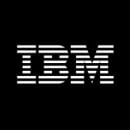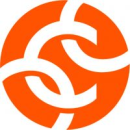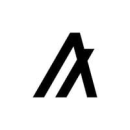The blockchain industry is booming, with the global blockchain market expected to reach nearly $249 billion by 2029, according to MarketsandMarkets. This is due in part to increased investment in the technology, extensive use of blockchain solutions in banking and cybersecurity, as well as high adoption of blockchain solutions for payment, smart contracts and digital identities.
With a range of applications, the technology can revolutionize government, finance, insurance and personal identity security, among hundreds of other fields. We’ve rounded up interesting examples of companies using blockchain.
Top Blockchain Companies
- Binance
- Coinbase
- IBM
- Ripple
- Block
- R3
Blockchain Companies to Know
Binance is the largest crypto trading platform where investors can buy more than 160 cryptocurrencies, including popular currencies like Bitcoin and Ethereum. The platform prioritizes convenience, allowing users to link bank accounts and purchase crypto for as little as $1. Users can then accumulate profits through staking rewards and low fees. At the same time, Binance protects users’ assets by storing them in U.S. facilities.
Coinbase is a digital portfolio that lets users buy and sell cryptocurrencies. The company’s technology makes buying and managing crypto easy with features like recurring buys and vault protection. Since 2012, Coinbase has expanded its network to include 245K partners across more than 100 countries and possesses $404 billion in assets on its platform.
Founded in 1911, IBM is a cloud platform and cognitive solutions company — it’s also the largest company in the world embracing blockchain. IBM has helped more than 220 businesses develop applications and data governance tools that run on blockchain, and it has become a major player in the open-source community for providing Hyperledger Fabric support.
Ripple enables global companies to digitize and build out their financial infrastructure by supporting cross-border payments in real time. With the ability to settle payments in under five seconds, Ripple has facilitated $70 billion in transactions. The company’s custody software also helps businesses secure and simplify digital asset management, and investors can turn to Ripple’s stablecoin Ripple USD as a safer trading option.
Block has developed a portfolio that includes well-known providers like Square and Cash App. While Square supports seamless payment solutions for small businesses, Cash App serves as a personal finances hub and has even expanded into a place where users can buy and sell Bitcoin. The company has also created TIDAL, which is a global music streaming platform that leverages blockchain technology.
R3 aims to reshape the financial industry by digitizing transactions with its distributed ledger technology, Corda. Corda is a platform that converts real-world assets into digital assets, producing a network that features quicker transactions, stronger privacy and greater scalability for organizations. To date, the Corda platform oversees more than $10 billion in on-chain assets and processes over 1 million transactions each day.
Chainlink is a Web3 services platform that makes it easy for developers to build their own Web3 applications. Its technology, which has enabled trillions of dollars worth of value, connects real-world data and computation with blockchains, and makes different blockchains — both public and private — interoperable with each other. Chainlink Web3 services are used by protocols like Aave, Synthetix and MakerDAO, and the company has established partnerships with tech industry players including Amazon Web Services, Google Cloud and CoinGecko.
It’s common to think of Bitcoin as just another form of currency, but it’s actually a blockchain: a decentralized digital public ledger, which can also serve as a base for a decentralized internet architecture in addition to its use as currency. Hiro Systems makes tools for web developers to use in building this new version of the internet within the Stacks Ecosystem, a decentralized group of independent developers.
Chainalysis works to improve trust across the blockchain ecosystem by providing banks, government agencies and other organizations with services, software and data crucial to blockchain acceptance. The company’s investigation and compliance software helps institutions identify and disallow hacked and stolen funds and has been instrumental in solving many of the world’s most high-profile cybercriminal cases, making blockchain safer and more accessible.
Coinme has set out to break down barriers by teaming with Coinstar to form a nationwide network of Bitcoin kiosks that accept cash investments and allow users to store investments via the Coinme app — making it easier for people to improve their financial lives and begin investing in Bitcoin and other cryptocurrencies.
Robinhood is a stock brokerage app that lets users buy and sell stocks, ETFs and cryptocurrency. The fintech giant entered the blockchain realm by letting customers invest in everything from Bitcoin to Litecoin. With $187 billion in assets under custody, Robinhood is one of the major financial players currently embracing blockchain.
DRW is a trading firm with a global presence. The company expanded into cryptoassets with the 2014 launch of its subsidiary Cumberland, which seeks to provide reliable liquidity that contributes to sustainable market growth. Institutional investors working with Cumberland benefit from access to relationship managers, electronic trading solutions and extensive expertise in risk management and technical analysis.
Lemonade combines artificial intelligence and blockchain to help users receive renters and homeowners insurance at reasonable rates. The company uses AI to create the optimal flat-fee rate for an insurance seeker, then its blockchain-based smart contracts help lock a user into a payment agreement. By using blockchain, Lemonade is able to approve insurance claims and payouts within minutes rather than days.
Mythical Games is a studio creating games and online experiences that feature true ownership of digital assets. A secondary digital economy based on a blockchain helps verify scarcity and create a clean record of ownership over unique digital items. Mythical Games’ first blockchain-based game, Blankos, was released in December 2020. Players can compete in races and shooting minigames as well as earn and buy playable NFTs.
Algorand makes digital transactions a common convenience by allowing companies to complete smart contracts with simple code while securing their blockchains with trustless technology. The company offers a pure proof-of-stake foundational blockchain. This goes beyond the traditional requirement of an open, public network by enabling a set of high-performing Layer-1 blockchains that provide security, scalability, complete transaction finality, built-in privacy, and advanced smart contracts that are essential to the digital asset ecosystem.
Frequently Asked Questions
What does a blockchain company do?
Blockchain companies provide platforms and applications for users to buy, sell, manage and protect cryptocurrencies and digital assets. They create the infrastructure needed to support digital transactions that are fast and secure. They may also offer tools for developers to build their own blockchain solutions.
What is the largest blockchain company?
It depends on the metrics being used to determine a blockchain company’s size. However, some of the biggest names widely recognized in the blockchain industry include Binance, Coinbase and IBM.

















